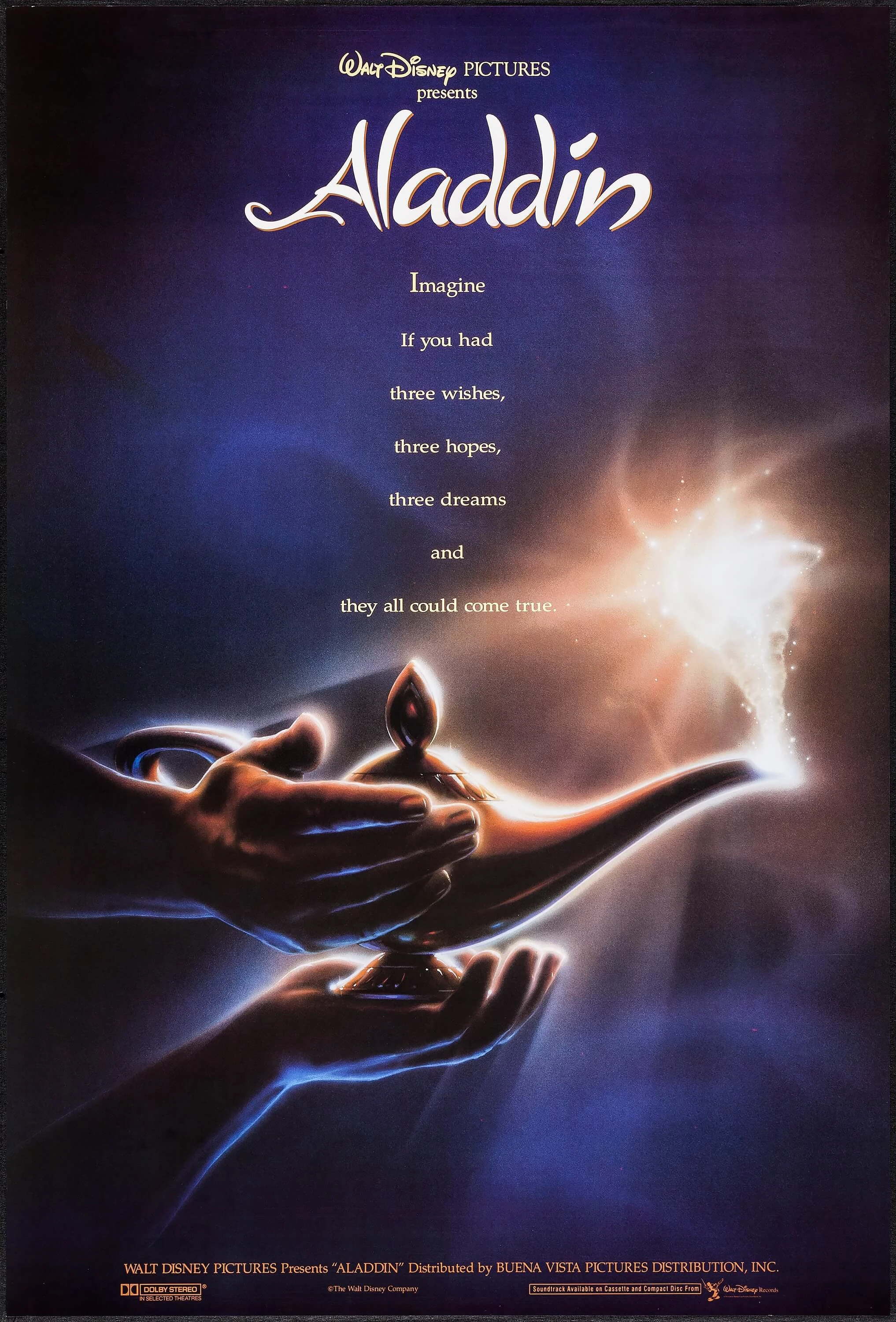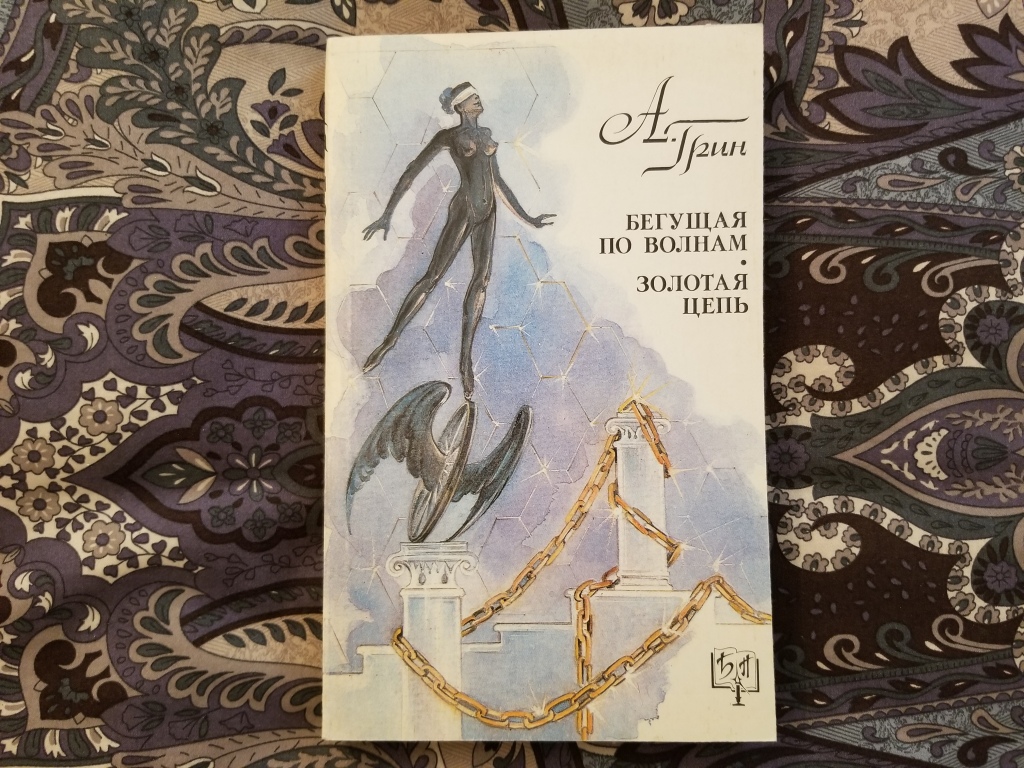






Thor was a majestic motion picture that combined Shakespearean themes with science-fiction to create one of the most unique superhero films ever made up to that point in time. It was also (at the time) the most aesthetically beautiful motion picture Marvel Studios had ever produced as well as the most emotionally complex. Thor was Marvel Studios’ first origin story since 2008’s Iron Man, and it was the film that first took the MCU beyond the stars, opening the door to the Cosmic side of the Marvel Cinematic Universe, which would be greatly expanded upon in forthcoming years.
Thor tells the story of two Prince’s of Asgard who are raised side-by-side until the Throne divides them and sets them upon two very different paths. In the beginning, Thor is the brash, rebellious, and egotistical son that is always anxious for a fight while Loki is the soft-spoken, eager-to-please, and quietly jealous son. Odin himself has raised both of his sons to believe that they were born to be kings, but the story takes a turn when Loki learns that he is adopted and is the son of the Frost Giant King Laufey. Loki learns this around the same time that Thor is cast out of Asgard by Odin and Loki’s ascent to the Throne coincides with Thor’s fall, but personally speaking, Loki’s rise is a turn to villainy while Thor’s fall teaches him what it means to be a hero.
In my opinion, Thor would have only worked with the right vision and the right cast, and Marvel Studios nailed it when it came to choosing who would direct this film, and who would portray these iconic characters who were not only Marvel comic book properties, but to some, actual deities. Just as Robert Downey Jr perfectly brought Tony Stark to life on film previously, Chris Hemsworth perfectly brought the God of Thunder to life, but doing this successfully went beyond just Hemsworth. Oftentimes in superhero films, the hero is defined by their villain, and that was certainly the case with this motion picture as Tom Hiddleston was incredible as Loki!
This was not a mere case of two characters being at odds and fighting either; Thor and Loki had a relationship and a bond that was clearly illustrated during their scenes together. As a viewer, I believed that underneath their bravado, Thor loved Loki and that Loki (in his own way) loved Thor, and this gave the film a tremendous depth that made many scenes more meaningful beneath their surface. As Thor, Chris Hemsworth had confidence that bordered on arrogance, and a chiseled physique. He was big, and strong, and charismatic, but within his eyes was a passion and a sincerity that brought his entire character together. Tom Hiddleston meanwhile was cunning and calculating, and he had a sinister smile, but his character depth was also found within his eyes, which were hauntingly desperate, and through which hints of a very damaged soul shined. Loki was as tragic as he was evil and whether they were standing side-by-side as brothers or fighting each other on the Rainbow Bridge, Hemsworth and Hiddleston had incredible chemistry.
I thought Loki was written perfectly as a villainous character, obtaining an origin story that was grounded in lies and despair. Anyone that has ever felt overlooked, underappreciated, or lost in the shadow of a sibling can relate to Loki, as can anyone that has ever had to wrestle with the frustrations of not measuring up to a loved one’s expectations, particularly those of a parental figure. These are complex, life-changing, and soul-shattering trials that only the strongest emerge from without scars, and Loki as a Marvel character is sort of the patron saint of the damaged, the outcast, and the fallen; a character that detests the proverbial cards that he has been dealt and that will do whatever it takes to come out of the game ahead in the end. Loki is certainly not a character without its flaws, but it is those flaws that make him so endearing and to many so relatable, and to more still so beloved. Loki – my personal favorite character in all of comics – was easily my favorite part of Thor, and I don’t have enough compliments to bestow upon Tom Hiddleston to justifiably praise his work with this character.
Next, I have to discuss Anthony Hopkins as King Odin, the All-Father. Again, what an amazing casting choice by Marvel Studios! Hopkins portrayed the character with passion, nobility, and aggression, and there was perhaps no scene more powerful in Thor than the one in which Odin casts Thor out of Asgard. The performances of Hemsworth, Hopkins, and Hiddleston during this scene specifically were mesmerizing!
Speaking of Asgard, just seeing the Realm Eternal brought to life was amazing! The architecture of the buildings and the beauty of the waters that surrounded the planetary body were really well done and I especially loved the sky, particularly at night. Asgard looked like a Heaven that I would want to go to!
There were so many other things that Marvel Studios got right in Thor! I loved seeing Lady Sif and The Warriors Three, whose spirits were captured flawlessly, and I enjoyed seeing The Destroyer brought to life, and I thought the nature of Mjolnir was perfectly achieved with Thor throwing the Hammer and it returning back to him and whatnot. I also loved seeing the God of Thunder conjure lightning on Jotunheim and wielding it against the Frost Giants; just an incredible and visually stunning scene that did a great job of capturing Thor’s immense power in a matter of seconds!
Back on Midgard, I enjoyed seeing Thor trying to fit-in on Earth after getting cast out of Asgard. The way the God of Thunder interacted with the humans that he encountered allowed room for some humor in what was otherwise a very heavy film, emotionally speaking. Thor going into a pet shop and asking for a horse was one of my favorite moments and I also loved the scene where everyone tries to lift Mjolnir in the desert to no avail, which came right out of the comics. Thor trying to break into the S.H.I.E.L.D. barricade was also a fantastic scene, and the Hawkeye cameo was an awesome bonus!
I also have to mention the big showdown pitting Thor against Loki at the end of the film! This was an incredible fight scene that saw each actor stay precisely true to their characters throughout. It was so sad to see Loki sort of try and become all of the things he resented Thor for being in an effort to earn Odin’s approval and emerge as Thor’s equal in his father’s eyes. Loki’s entire plan was based on this logic, and he so desperately wanted it, he was willing to not only slay his biological father in the name of his adopted one, but to destroy the entire Frost Giant race in Odin’s name. Loki fought Thor with rage, anger, aggression, and yes, a hint of malevolence, but he also fought Thor with conviction and with literal tears in his eyes. This was an emotionally complex war between one brother that had risen above his pride and another who had been crushed by it. Make no mistake, Thor’s rise would have never occurred without Loki’s fall.
This will probably sound blasphemous to most Marvel fans, but Thor was for me at the time, my favorite of the four Marvel Studios films that had been released up to that point. When you take into consideration the costumes and the set pieces and the music and the effects, and the stellar performances that bled through all of the mythology; it was a huge achievement in comic book moviemaking. I love this film!















The German mathematician David Hilbert was born in Konigsberg on January 23, 1862. He studied and taught at Konigsberg University until he transferred to the University of Gottingen in 1895, where he made an immense contribution to various fields of mathematics. For example, in 1900, he proposed 23 mathematical problems for investigation, most of which have since been solved.
Hilbert was described as a gay young man with a reputation as a snappy dancer and a charmer who flirted outrageously with a great number of women — traits that would not suggest Asperger Syndrome. However, this chapter will present evidence that he may in fact have displayed characteristics of this syndrome.
Life History
Richard Courant found Hilbert to be “a unique personality, profoundly immersed in his work and totally dedicated to his science, a teacher and leader of the very highest order, inspiring and most generous, tireless and persistent in all of his efforts” (Reid, 1970, p. 2). His mother Maria Therese was an unusual woman — she was interested in philosophy and astronomy, and fascinated by prime numbers. His father was a county judge, “rather narrow in his point of view with strict ideas about proper behavior, a man so set in his ways that he walked the same path every day and so rooted in Konigsberg that he left it only for his annual vacation on the Baltic” (Reid, 1970, p. 3).
As a boy, Hilbert had an intense desire for truth, but he described himself as a dull and silly youth. He found memorization exceedingly difficult, and language classes caused him more sorrow than joy. He was not particularly quick at comprehending new ideas. A member of the Hilbert family recalled, “all I know of uncle David is that his whole family considered him a bit off his head. His mother wrote his school essays for him. On the other hand, he could explain mathematics problems to his teachers. Nobody really understood him at home” (Reid, 1970, p. 6). Mathematics appealed to him, and he was delighted with it because it was easy and effortless. It required no memorization.
Hilbert found the perfect mate, married, and fathered a child in 1893. The boy, Franz Hilbert, was “disturbed.” Hilbert said “I must consider myself as not having a son” (Reid, 1970, p. 139; Einstein also ignored a son with mental illness). It is not clear whether or not Franz had schizophrenia, but he did announce that he wanted to save the family from evil spirits that were after them. It was said that he lacked tact and would speak of his views inappropriately.
Work
Hilbert did not grasp complicated ideas in a flash and took his time to get to the bottom of matters. He set high standards of simplicity and clarity for his talks to the mathematics club. After his death, Nature described Hilbert as a “mathematical Alexander.” This is typical of persons with Asperger Syndrome and genius; there is a parallel with Wittgenstein.
Hilbert’s conception of mathematical existence was freedom from contradiction. He divided his working life into periods during which he occupied himself almost exclusively with one particular problem. If he was engrossed in integral equations, integral equations seemed everything. When he dropped a subject, he dropped it for good and turned to something else. There were five periods in his working life:
Max Von Lau, a Nobel Prize winner, noted, “Pure mathematics … did not fail to impress me, especially in the brilliant courses of David Hilbert.” He went on to say that Hilbert was “the greatest genius I ever laid eyes on” (Reid, 1970, p. 68).
Hilbert’s lectures were in some ways like Wittgenstein’s, in that he prepared them only in the general sense and then tried to work out the details in the lecture. At times they were mathematics in the making. His lectures were a faithful reflection of his spirit (direct, intense).
Social Behavior
For Hilbert, comradeship and human solidarity were essential to scientific production (contrary to an Asperger trait). He complained about a lack of mathematical conversation. Students had to be careful about offering a lie or an empty phrase to him, and his directness could be something to be afraid of (Reid, 1970, p. 53). He was not good with children.
Hilbert was described as “a bit of an arrested juvenile” (Reid, 1970, p. 131). He would come to a lecture hall in short-sleeved opennecked shirt — inconceivably inappropriate attire for a professor in that day. He pedaled through the streets with bouquets from his garden for his “flames,” but was just as likely to bear as his gift a basket of compost balanced on the handlebars. At a concert or restaurant, no matter how elegant, if he felt a draught, he borrowed a fur or a feather boa from one of the ladies present. He liked pretty young ladies and delighted in explaining mathematical ideas to them. He fancied himself a dashing man of the world.
Hilbert thought the war was stupid, and said so (not unlike Bertrand Russell’s views). He refused to sign a declaration in favor of the war and was treated as a traitor.
Narrow Interests/Obsessiveness
Hilbert had an extraordinarily focused attention on mathematics — he once described himself as a mathematical Eskimo. Richard Courant said that Hilbert had “a fantastic balance between intense concentration and complete relaxation” (Reid, 1970, p. 109).
Routines/Control
As we have seen, Hilbert imposed strict self-control in terms of work. He was also controlling of others; when he went to a restaurant after a lecture, the subject of conversation was “only algebraic number fields” (Reid, 1970, p. 51). His active influence on the mathematicians of his time was embodied in a statement that one of them made directly to him: “You have made us all think only that which you would have us think” (Reid, 1970, p. 214).
He absolutely denied the reality of his physical illness — pernicious anemia — which was more or less fatal at the time he got it. It seems that his wife was entirely devoted to him and looked after him. However, there is no sense of reciprocal social interaction with her. She simply provided for all his needs, while he was totally controlling, dominant, and he appears to have entirely imposed his will on her in the home situation. He would have been lost without her and could not have lived the life he lived.
An example of the importance of routines in Hilbert’s life appears in an anecdote told about him: One day, at a party in their house, his wife asked him to go upstairs and put on a clean shirt. After some time, when he had failed to reappear, she went upstairs and found him asleep in bed. For Hilbert, the natural sequence of things was to take off his coat, then his tie, then his shirt, and so on, and then go to sleep (Reid, 1970).
Language/Humor
Hilbert delivered his lectures with many repetitions to make sure that everyone understood him and repeated briefly what had been covered in a previous lecture. His sentences followed each other simply, naturally, and logically. We have no definite evidence of abnormalities in this area. What was very unusual about his language was its content, with an almost exclusive focus on mathematics.
Naivety/Childishness
Hilbert was said to have had “all the naivety and the freedom from bias and tradition which is characteristic only of true great investigators” (Reid, 1970, p. 53). His mathematical approach was to go back to questions in their original conceptual simplicity. George Polya said that Hilbert always “looked so innocent” (Reid, 1970, p. 132).
Hilbert demonstrated a “naive and imperative egoism” that was always “egoism in the interest of his mission, never of his own person.” He once made an interesting comment about Einstein: “Do you know why Einstein said the most original and profound things about space and time in our generation? Because he had learned nothing at all about the philosophy and mathematics of time and space” (clearly, he thought spending too much time reading others’ work was counterproductive) (Reid, 1970, pp. 141-142).
Lack of Empathy
Alfred North Whitehead wrote, “The leading characteristic of mathematics is that it deals with properties and ideas which are applicable to things just because they are things, and apart from any particular feelings, or emotions, or sensations, in any way connected with them. This is what is meant by calling mathematics an abstract science” (Whitehead, 1948, p. 2). It is perhaps one of the reasons why the study of mathematics has attracted many people with Asperger Syndrome.
Hilbert seemed to lack tact in his relationship with “the flames” he pursued. He basically denied the existence of his son when he got ill. He couldn’t really relate to children, as we have seen, and would spend just a minute or so with them. This is not unlike Bertrand Russell.
While he had very intense relationships with mathematicians, these were exclusively focused on discussing mathematics, which is typical of Asperger Syndrome. He could also relate in a social way to students, but again, even at dinner, mathematics was the focus. The brutality with which he could dispose of someone who did not meet his standards was well known. Hilbert once told Norbert Wiener, later a famous mathematician himself, that his lecture was “the worst there ever has been!” (Reid, 1970, p. 170).
Despite being married himself, Hilbert was against scientists marrying. When Wilhelm Ackerman married, Hilbert was very angry and refused to do anything more to further Ackerman’s career. Ackerman, a gifted young logician, had to teach in a high school.
Nonverbal Communication Problems
From photographs, Hilbert appears to have had a peculiar, stiff gaze.
Motor Clumsiness
He was probably not clumsy because he was a good dancer. In very high-IQ Asperger Syndrome, clumsiness does not come into the picture. It is possible that in cases where clumsiness does come in, a somewhat lower IQ exists and maybe more severe brain pathology. (True Asperger Syndrome probably does not include clumsiness, which should therefore be excluded as a criterion for it — this may be the one item that Asperger himself got wrong.)
Anxiety/Depression
In 1908, Hilbert became depressed and spent time at a sanatorium. The breakdown did not seem to be triggered by any specific experience. Courant, in the Foreword to Reid’s (1970) book, wrote that “almost every great scientist I have known has been subject to such deep depressions.” He felt that this might be due to periods in the life of a productive person when he appears to himself to be losing his powers, which can come as a great shock.
Conclusion
David Hilbert meets the criteria for Asperger Syndrome, according to Gillberg (1996), with the exception of an absence of speech and language problems and motor clumsiness. However, neither of these features is essential for such a diagnosis, while their absence would suggest a diagnosis of Asperger’s disorder under the American Psychiatric Association (1994) classification. It is likely that Asperger Syndrome/disorder helped Hilbert to become as creative as he was in mathematics because it gave him the kind of exclusive focus that is necessary for major creativity.

A Woman of the Iron People was published in two different formats: together as one book in most editions, and as a mass market duology with subtitles In the Light of Sigma Draconis and Changing Woman. The cover in the sidebar is for the former (the uglier cover of the two, and one that has no recognizable connection with the story); the other information is for both books combined. It’s really a single novel, however, and I recommend reading it in that form. If you’ve happened across the mass market edition, plan on reading it back-to-back.
The co-winner of the first Tiptree award and also the (rather surprising) winner of a Mythopoeic award, A Woman of the Iron People is an anthropological first-contact novel. It’s told primarily in the first person by the human researcher Lixia, who is one of eight specialists sent down onto an inhabited planet by a human exploration mission. The natives are humanoid but furred and are at (roughly) a bronze-age level of technology, divided into groups of villages that specialize in a particular technology. We meet a native named Nia, a blacksmith from the iron people, in the first chapter of the book, and Lixia then meets her in the second chapter and eventually forms a close friendship with her. She and Lixia are the focuses around which the story forms.
This is first contact as slow and deliberate anthropological exploration by humans who are deeply concerned about negatively influencing the native inhabitants. We slowly realize that the world from which Lixia comes is nearly as foreign to us as the world that she’s exploring: there’s been some type of ecological collapse and apparently a partial governmental collapse as well, capitalism is thoroughly discredited, and one of the factions on the ship seems to be partly Maoist (although a version of Maoism that leans towards the better characteristics of the philosophy). Lixia herself was apparently previously embedded in a group that sounds like back-to-nature primitives. And when we meet a second anthropologist, he’s from a culture in California that appears to combine a close relationship with nature with some aspects of California surfer, hippie, and drug cultures. While the anthropologists are understanding the native culture, the reader is piecing together a picture of what happened to Earth.
The most likely comparison here is to Le Guin, and Arnason has a similar slow pace and detailed examination of local culture as The Dispossessed or The Left Hand of Darkness. Anthropology and careful observation is strongly foregrounded. Lixia collects stories, music, and cultural observations and is always happy for people to explain customs or tell mythical or legendary stories. Her gatherings of story are mostly presented in the book as she finds them, which leads to a slow pace, a lot of conversation, and quite a few mythological digressions. The mythology is somewhat interesting; the songs and poetry much less so, at least for me, and I found most of them painful.
The native species is somewhat human-like in its social structures, but with a radically different experience of gender and a considerably sharper sexual dimorphism than humans. When they go through puberty, living in the company of others becomes actively uncomfortable for nearly all males and they, with only a few exceptions, leave their home villages to find and then hold territory against other males, living alone. The civilization is therefore strongly female-centric, since only females and children live in the villages. Both males and females have small crafts, and there’s an elaborate gift-giving culture, but larger industry is an exclusively female occupation due to male isolationism. Tied into and supporting that cultural organization is a defined yearly period of sexual heat, during which women from the village walk out into the wild lands claimed by men and mate with the first man they find, exchanging gifts and then returning after the week or two of sexual activity.
Most of this is laid out in the first chapter, told from Nia’s perspective, but additional complexity and depth are added over the course of the book. Different native cultures handle the biological limitations differently and form different roles for men and women. And Nia herself makes an unusual break with tradition between the first chapter and the point at which Lixia first meets her. One of the slow progressions throughout the book is a possible weakening of the strict gender boundaries of Nia’s people.
All this is occasionally interesting, but it does not constitute a plot, and for me that’s the primary weakness of A Woman of the Iron People. There is an overarching problem (learning the natives and then deciding what sort of contact humans should have with them) that is slowly explored over the course of the book, and there are some intermediate goals to give the book structure, but it’s mostly a meander across an alien civilization as seen through the eyes of an anthropologist. It usually lacks urgency or much momentum, and parts are filled with wilderness survival. (I once again find it remarkable how much of science fiction is filled with wilderness survival stories, often with quite primitive technology.) For a while, it looked like the tension would increase towards the conclusion, but despite some relatively dramatic events the book stubbornly maintained a leisurely and introspective pace. It’s an interesting statement about both anthropology and about first-contact scenarios, and it feels realistic, but it doesn’t make for compelling reading.
The grounding for the Tiptree award is obvious from the detailed examination of a culture and society with different sexual biology and drastically different resulting gender roles. And that examination is neither static nor concerned only with the typical case; Arnason populates her alien race with dissenters, outcasts, and people who flaunt social norms, and tests those norms in part by looking at their boundaries. Despite the fact that none of it is particularly exciting, it’s a thoughtful and deep look at the way gender interacts with society and the consequences and impact of partial rejection of social rules.
The Mythopoeic award, given to the work most in the spirit of the Inklings (C.S. Lewis, Tolkien, and friends), is much less obvious and puzzled me a bit. I suspect the connection is to C.S. Lewis’s Space Trilogy, particularly Out of the Silent Planet, which featured a similar human first-contact situation and exploration of an alien culture (although not by an anthropologist). There are some ways in which Arnason’s culture is also innocent: large-scale warfare, for example, is unknown, due presumably to a combination of biology rejecting male raiding parties and a culture of small bands in a resource-rich environment. Arnason’s concern with innocence is cultural rather than spiritual, but it’s a significant theme in the book.
A Woman of the Iron People is not without merits, and I can see why it won the Tiptree. Parts of it I quite enjoyed; Nia and Lixia are both interesting, deep, and enjoyable characters, and I liked the radical changes in human culture that meant I had to figure out the humans at the same time as the aliens. But it’s just too slow and too aimless for me to recommend as entertainment. Still, consider giving it a try if you want to see what a full anthropological treatment of first contact might look like.
American professor Grover Furr talks about his book The Mystery of the Katyn Massacre: The Evidence, The Solution.
Grover Carr Furr III (born April 3, 1944) is an American professor of Medieval English literature at Montclair State University, best known for writing on Joseph Stalin. Born in Washington, D.C., Grover Furr graduated from McGill University in Montreal, Quebec, Canada in 1965 with a BA in English. He received a Ph.D in Comparative literature from Princeton University in 1978. Since February 1970, he has been on the faculty at Montclair State University in New Jersey, where he specializes in medieval English literature.